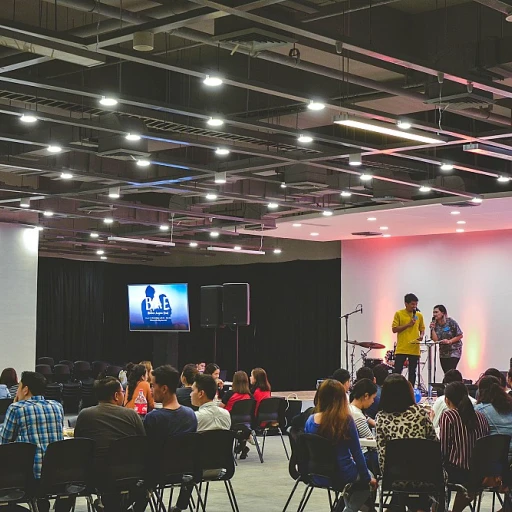Reinventing Office Spaces: Boosting Efficiency in Indian Work Cultures
Embracing the Evolution of Work Environments
The Indian workforce is evolving at a brisk pace, creating a diverse tapestry of work cultures that demand innovative office management strategies. The key to enhancing productivity lies in reinventing office spaces to align with the dynamic needs of modern employees. A hybrid design that incorporates both collaborative and private work areas can lead to a surge in efficiency and overall job satisfaction.
Designing for Productivity: The Aesthetics and Functionality
A well-designed office goes beyond aesthetics; it is about creating an environment that fosters focus and innovation. By integrating natural lighting, ergonomic furniture, and technology-enabled workstations, office managers can craft spaces that not only look good but also contribute significantly to the operational efficiency. It's not just about the physical space but creating an atmosphere that enhances the psychological well-being of employees, potentially leading to a decline in absenteeism and a robust increase in productivity statistics.
Collaborative Technology: The Smart Office Edge
The rise of smart office technology is reshaping the very fabric of Indian office management. Utilizing advanced software and hardware solutions helps in maintaining a seamless workflow and encourages collaboration. From real-time project management tools to AI-powered virtual assistants, embedding intelligent systems into office spaces can streamline administrative tasks and free up valuable time for strategic endeavors.
Implementing Dynamic Scheduling: The New Norm for Indian Office Managers
Revolutionizing Work Patterns with Dynamic Scheduling
The Indian office environment is witnessing a significant shift towards dynamic scheduling, a system where flexibility and customization are key. Office managers are increasingly adopting this innovative approach to schedule management, recognizing that a 'one size fits all' timetable does not cater to the diverse work habits of contemporary employees. By incorporating dynamic scheduling into their offices, managers can create a harmonious and efficient workspace that maximizes employee productivity and job satisfaction.
Adapting to Evolving Employee Needs
Understanding the individual needs of employees is at the heart of dynamic scheduling. Each employee has peak productivity periods and by allowing them to work in sync with their internal clocks, office managers can greatly enhance workplace efficiency. Statistics have shown that tailored work schedules can lead to a significant increase in productivity, with some studies highlighting a boost of up to 15% in output when flexible scheduling is implemented.
Technology: The Backbone of Flexible Work Arrangements
Technology plays a pivotal role in the successful implementation of dynamic scheduling. Leveraging state-of-the-art scheduling software, office managers can facilitate seamless schedule adjustments, accommodate remote work scenarios, and improve overall operational transparency. Tools such as cloud-based calendars and project management applications ensure that team members are synchronously updated in real-time, regardless of their physical location.
Maximizing Office Space Utilization
Dynamic scheduling is not only about managing time but also about optimizing the physical workspace. By staggering work hours and offering hot-desking options, office managers can make better use of office space, reducing overhead costs and energy consumption. This strategic spacing can lead to a decluttered environment that promotes focus and innovation among the workforce. With the judicious use of office resources, managers set a precedent for sustainable office practices as echoed in eco-friendly management strategies.
Remember, the shift to dynamic scheduling is an ongoing process that requires commitment and adaptation. By keeping your pulse on the evolving needs of your workforce and remaining agile in your management style, you can harness the full potential of dynamic scheduling to cultivate a vibrant and productive office culture in India.












